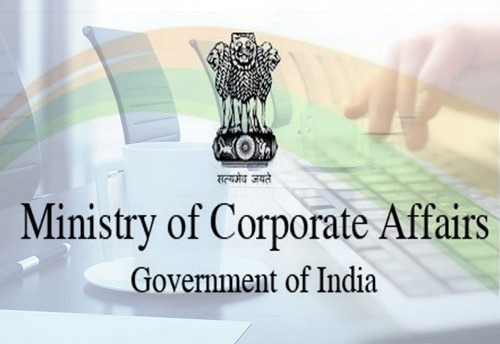Arun Tandon, J.@mdashHeard learned counsel for the petitioner and learned standing counsel for the State-respondents.
2. Petitioner, before this Court, seeks quashing of the order passed by the Superintending Engineer (R.E.S.) Circle, Allahabad dated 22nd March, 2000, wherein regularization offered to the petitioner under the order dated 15th October, 1994 has been cancelled after recording a finding that the petitioner''s case is not covered by the U. P. Regularization of Ad-hoc Appointments (On Posts Outside the Purview of the Public Service Commission) (Second Amendment) Rules. 1989 (hereinafter referred to as the ''Amendment Rules, 1989'') and therefore, order of regularization dated 15th October, 1994 being patently illegal was cancelled.
3. Learned counsel for the petitioner challenging the order submits that petitioner was initially appointed on 28th May. 1986 for a period of three months, a copy of the appointment letter has been enclosed as Annexure-1 to the writ petition, and thereafter, he was offered appointment under the order dated 27th July, 1987 for a period of six months. It is stated that the respondent-authorities considered the claim of the petitioner for regularization under Amendment Rules, 1989 and after obtaining opinion in the matter declared that the period between 1986 to 1987, when the petitioner did not work, be treated as leave without pay and on that basis an order was passed for regularizing the services of the petitioner treating him to have been appointed on ad hoc basis on 29th May, 1986.
4. Learned counsel for the petitioner submits that although the present writ petition is completely silent about the claim petition filed by the petitioner before the U. P. Public Services Tribunal, but through supplementary-affidavit filed in the year 2003. the petitioner has disclosed that he had approached this Court earlier by means of Civil Misc. Writ Petition No. 24414 of 1989 for regularization. The writ petition was dismissed vide order dated 13th December, 1989 with a direction upon the petitioner to approach the U. P. Public Service Tribunal. Petitioner, therefore, filed claim petition No. 18/F/III of 1990 before the U. P. Public Service Tribunal, wherein an order of status quo was passed on 18th January, 1990. While the claim petition was pending and affidavits were exchanged, the petitioner was regularized under order dated 27th July, 1994. The petitioner, therefore, made an application for his claim petition being dismissed as withdrawn. Accordingly, the claim petition was dismissed as withdrawn vide order dated 22nd September, 1995/9th August, 1995. He therefore, submits the recall of the order of regularization in the facts of the present case is patently unjustified and amounts to negation of the proceedings which were initiated by the petitioner before the U. P. Public Service Tribunal.
5. I have considered the submissions made by the learned counsel for the parties and have examined the records of the present writ petition.
6. From Annexure-1 to the writ petition, which is the first letter of appointment dated 29th May. 1986. issued in favour of the petitioner, it is apparently clear that he was appointed as Clerk/Typist, for a period of three months only on a fixed pay of Rs. 350 per month with a specific condition that services may be terminated at any point of time. Such appointment of the petitioner, which was time bound and on fixed pay, cannot be treated to be an ad hoc appointment. It is further admitted on record that after expiry of three months from the date of the order dated 29th May, 1986, petitioner did not work. After nearly one year, a fresh appointment letter was issued in his favour by the Superintending Engineer dated 27th July, 1987, enclosed as Annexure-2 to the writ petition, wherein he was offered appointment as Junior Clerk for a period of six months only in the pay-scale of Rs. 454-550. It was specifically provided under the order that the appointment would take effect from 1st June. 1987 and that the petitioner will have no claim in respect of break in service between 1986 to 1987. This order of appointment was accepted by the petitioner with open eyes and without any protest.
7. What logically follows from the aforesaid two orders of appointment is that the first appointment of the petitioner was on the post of clerk-cum-typist on a fixed pay of Rs. 350 for a period of three months only. For a period of nearly one year, he did not work in the establishment. In July, 1987, he was offered fresh appointment as junior clerk for a period of six months in the pay-scale of Rs. 454-550 with a specific condition that the appointment shall take effect from 1st June. 1987 and the petitioner will have no claim in respect of earlier break in service.
8. This Court has no hesitation to hold that whatever the order dated 27th July, 1987, could at best be read, as an order of appointment on ad hoc basis w.e.f. 1st June, 1987 only. Order dated 27th July. 1994. which directed regularization of the petitioner, was based on complete misreading of the Amendment Rules. 1989. wherein ad hoc appointments made on or before 1st October. 1986 alone were directed to be regularized. Appointment of the petitioner on ad hoc basis was admittedly not on a date, which was prior to 1st October, 1986 nor the petitioner was actually working on ad hoc basis as on 1st October, 1986. In these circumstances, this Court holds that the case of the petitioner was not covered within the Amendment Rules, 1989 nor the authorities were justified in directing regularization of the petitioner under the Amendment Rules, 1989. What is surprising to note is that the petitioner was appointed on a fixed pay for a period of three months only in 1986 and for the purposes of granting regularization the authorities decided to treat the period between 1986 to 1987 as leave without pay. Under which statutory provision, such period qua the person like the petitioner can be treated to be leave without pay, has not been noticed by the authorities under the order of regularization nor the learned counsel for the petitioner could refer to any such provision, which may be provided for such period being declared as leave without pay to a person who was appointed on a fixed pay for a period of three months only.
9. Consequently, this Court holds that the order impugned cancelling the regularization of the petitioner is strictly in accordance with law. No interference with the order impugned is called for under Article 226 of the Constitution of India. Any interference with the order would only have the effect of restoring an earlier illegal order of regularization dated 27th July, 1994. Such cannot be the outcome of writ proceedings. (Reference
10. In view of the aforesaid, this Court finds no good ground to interfere with the order impugned. However, it is provided that if the petitioner is entitled to be considered for regularization under any subsequent Rules, this order shall not affect the right of the petitioner to make an application for the purpose.
The present writ petition is dismissed subject to the observations made above.

